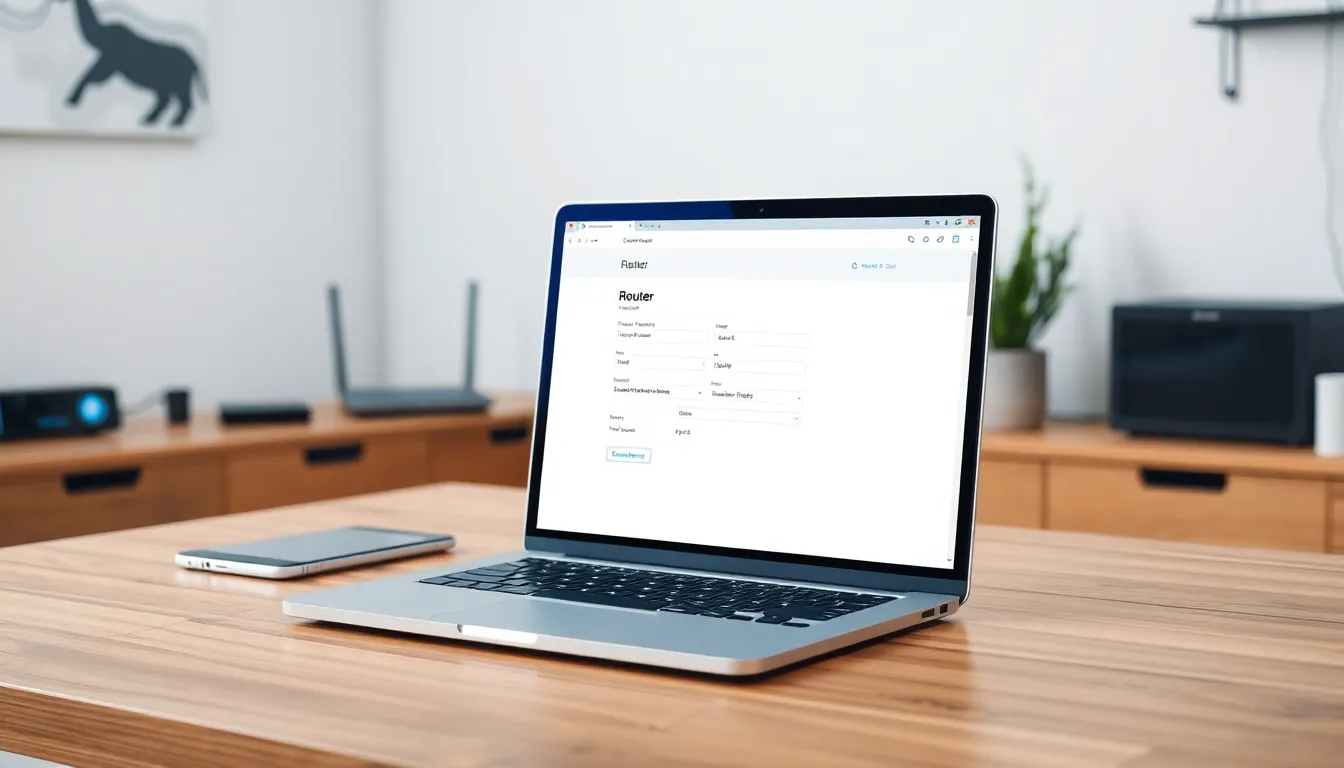Table of Contents
ToggleIn today’s fast-paced world, small businesses can’t afford to be left in the dust. With everyone glued to their smartphones, having a mobile app isn’t just a luxury; it’s practically a necessity. Imagine a world where customers can place orders, book appointments, or even chat with you while lounging on their couch in pajamas. Sounds dreamy, right?
Mobile apps are the secret sauce to boosting customer engagement and streamlining operations. They help small businesses stand out in a crowded marketplace and keep customers coming back for more. So, if you think your business can thrive without one, it might be time to rethink that strategy. After all, who wouldn’t want to turn casual browsers into loyal fans with just a tap on their screens? Let’s dive into the world of small business mobile apps and explore how they can transform the way customers interact with your brand.
Overview of Small Business Mobile Apps
Small business mobile apps play a crucial role in enhancing customer engagement and streamlining operations. Their significance continues to grow as digital presence becomes more vital.
Importance for Small Businesses
Mobile apps facilitate improved customer interaction, offering businesses a direct line of communication. Many consumers prefer mobile apps for convenience, making them more likely to engage with brands that offer them. A mobile app can enhance brand visibility, ensuring businesses remain top of mind. It acts as a marketing tool, sending notifications about promotions or events directly to users. The potential for increased sales is substantial, as mobile apps can influence purchasing decisions.
Key Features to Consider
Prioritization of user experience is essential when developing a mobile app. Features such as easy navigation and quick load times enhance usability. Integration with payment systems simplifies transactions for customers. Personalization options, such as tailored recommendations, significantly improve user satisfaction. Analytics tools track user behavior, guiding future app updates. Businesses should also consider security features to protect sensitive customer information.
Types of Small Business Mobile Apps

Small businesses utilize various mobile apps to enhance efficiency and engage customers effectively. Understanding the different types aids in selecting the right option for specific needs.
E-Commerce Apps
E-commerce apps enable businesses to sell products directly to consumers through mobile devices. They provide a seamless shopping experience, offering features like product catalogs, shopping carts, and secure payment options. Small businesses can integrate features such as push notifications for sales and promotions to encourage purchases. According to statistics, 54% of consumers prefer shopping via mobile apps due to convenience. These apps help drive repeat sales and foster brand loyalty among users.
Customer Relationship Management (CRM) Apps
CRM apps assist small businesses in managing customer interactions and relationships. Tracking customer data, sales leads, and communication history becomes manageable with these tools. Enhanced organization helps improve customer service response times. By integrating with marketing tools, businesses can tailor communication strategies based on customer preferences. Research shows that using CRM systems increases sales productivity by 34%. These applications focus on building long-term customer relationships, vital for sustained business success.
Project Management Apps
Project management apps streamline collaboration and organization within teams. They facilitate task assignment, file sharing, and progress tracking, which enhances productivity among team members. Features such as deadlines, reminders, and progress reports keep everyone on the same page. Using these applications supports better resource allocation and minimizes project delays. Over 77% of high-performing projects utilize project management software. This type of app is crucial for small businesses looking to deliver quality results on time.
Benefits of Using Small Business Mobile Apps
Small business mobile apps offer a variety of advantages that enhance both customer interactions and operational efficiency. These benefits help businesses thrive in a competitive environment.
Enhanced Customer Engagement
Mobile apps significantly improve customer engagement. By providing a direct line of communication, businesses can connect with customers instantly. Features like personalized notifications keep consumers informed about promotions, events, or new products. Engaged users are more likely to interact with the brand, leading to increased loyalty. Companies can also gather feedback through in-app surveys, allowing for continuous improvement in services and products. Customers appreciate a business that listens, which fosters lasting relationships.
Streamlined Operations
Operational processes become more efficient with mobile apps. Automation of tasks, such as appointment scheduling or order processing, saves valuable time for employees. Additionally, apps facilitate better communication within teams, making it easier to manage projects. Integration with payment systems simplifies transactions, reducing wait times. When operations run smoothly, productivity increases, allowing businesses to focus on growth and customer satisfaction. Small businesses often reclaim hours previously lost to manual processes through these efficiencies.
Data Analytics and Insights
Mobile apps provide valuable data analytics and insights. By tracking user interactions, businesses gain a deeper understanding of customer behaviors and preferences. This information helps refine marketing strategies for better targeting. Businesses can analyze sales trends to adjust inventory and improve offerings. Insights derived from user data empower small businesses to make informed decisions, enhancing their ability to adapt to market changes. Leveraging this information leads to improved performance and a stronger market presence.
Challenges in Implementing Mobile Apps
Implementing mobile apps presents challenges for small businesses, often hindering their success in the digital landscape.
Budget Constraints
Budget constraints frequently impede small businesses from developing mobile apps. Many businesses operate on tight budgets and have limited resources for app development. High costs for custom-built apps can deter entrepreneurs from pursuing this avenue. Furthermore, ongoing expenses such as maintenance, updates, and marketing often strain financial resources. Balancing quality and affordability is crucial. Understanding potential return on investment can help justify the upfront costs. Exploring cost-effective platforms or frameworks can also help businesses manage expenses efficiently.
Technical Expertise
Technical expertise remains a significant hurdle for small businesses aiming to implement mobile apps. Many business owners lack the necessary skills to build or manage an app effectively. Hiring skilled developers can increase expenses, complicating the budgeting process. Moreover, the evolving landscape of mobile technology demands continuous learning and adaptation. Businesses might face difficulties in integrating new features or ensuring app security without the proper expertise. Seeking partnerships or outsourcing development tasks can provide the necessary skills without overwhelming internal resources.
Embracing mobile apps is vital for small businesses aiming to thrive in a competitive landscape. These tools not only enhance customer engagement but also streamline operations, allowing businesses to focus on growth. With the right features and strategies, mobile apps can transform how brands interact with their customers, fostering loyalty and driving sales.
While challenges exist, such as budget constraints and technical expertise, small businesses can navigate these hurdles through strategic partnerships and outsourcing. Investing in a mobile app can yield significant returns, making it a worthwhile consideration for any small business looking to elevate its market presence.





